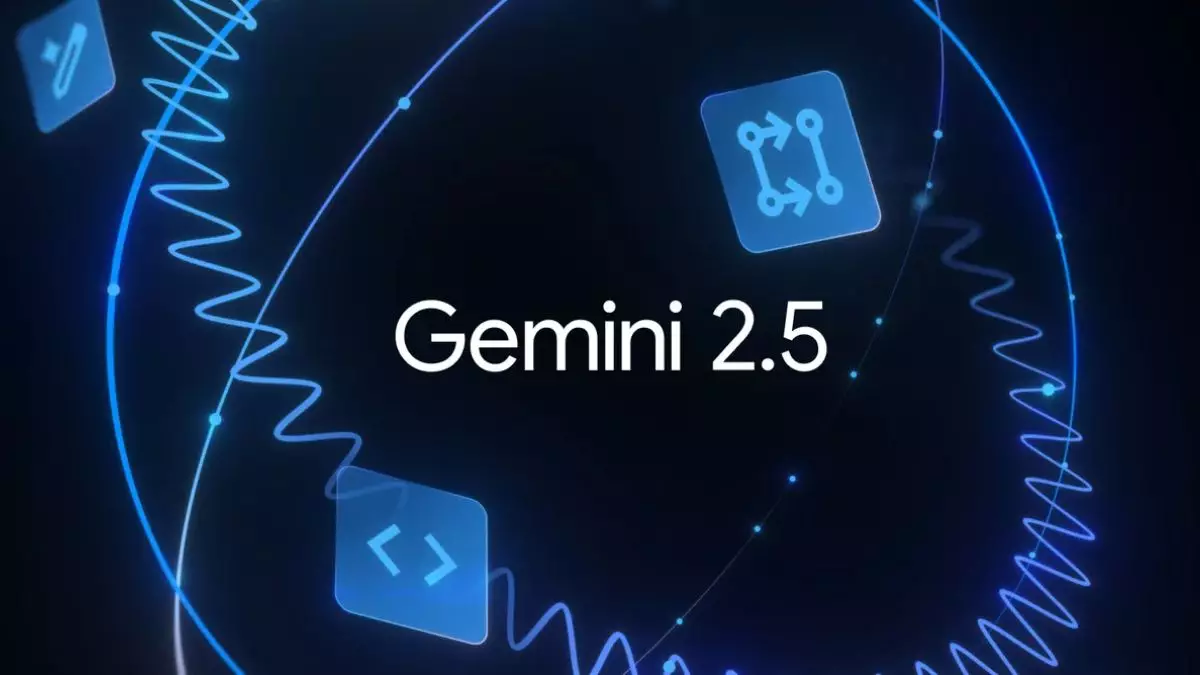On Tuesday, Google formally rolled out the Gemini 2.5 family of artificial intelligence models, marking a pivotal moment not only for the tech giant but also for the broader AI landscape. The introduction of stable versions such as Gemini 2.5 Pro and Gemini 2.5 Flash has set the stage for a distinct experience for users, including those on the free tier of the platform. While this innovation is impressive, it begs the question: are we truly witnessing a transformative leap, or merely a temporary thrill masked as progress?
The decision to include the Gemini 2.5 Pro in the free tier is a double-edged sword, one that illustrates Google’s ambitions to democratize AI access but also highlights the limitations imposed on those not willing to pay. This approach positions Google as a pioneer, seeking to include a broader audience in the AI revolution. However, it raises critical concerns regarding equity and accessibility, particularly with the noticeable disparity in daily usage quotas between free and paid users. Should transformative technologies be reserved for those who can afford them?
From Preview to Performance: Addressing AI’s Growing Pains
The transition from a preview version of the Gemini models to their stable counterparts carries with it a significant promise of reliability. Historically, AI models operating in preview often suffer from glitches and unpredictable behavior, which can be frustrating for users expecting seamless interaction. Google’s effort to stabilize these models is commendable and essential, especially as AI becomes an integral part of various applications—from chatbots to complex problem-solving tasks.
Yet, we must convey valid skepticism. The questions to consider are: How effective will the fixes be? And can we trust that the issues in earlier versions will be resolved? Google’s track record on AI has been promising but inconsistent; hence, users should remain cautious and maintain realistic expectations. The rollout promises greater performance, but it remains to be seen whether users will experience significant improvements or merely minor tweaks disguised as substantial upgrades.
The Introduction of Flash-Lite: A New Speed Demolisher?
Among the new entrants in the Gemini lineup is the 2.5 Flash-Lite—an intriguing addition that positions itself as Google’s fastest and most cost-efficient AI model. The hype surrounding these claims is palpable. While the technological specifications sound impressive, with promises of heightened performance in coding, mathematics, and reasoning, the practicality of these features remains questionable.
The world of AI is fraught with exaggerated marketing promises, and it often feels like we are living in a narrative where flashy terms obscure the reality of capabilities. The near real-time applications suggested by Google are tantalizing, but we must ask ourselves whether these promises can stand up to scrutiny in real-world scenarios. Do we genuinely need AI that executes tasks with increasing speed, or is the focus better placed on accuracy and nuance?
Connected and Contextual: Navigating AI’s Future
Google’s integration of the Gemini models with its other platforms, including Google Search and code execution tools, can be seen as a strategic move to establish a more cohesive AI ecosystem. The promise of context-aware responses based on user search history has the potential to create a more personalized experience. However, herein lies another dilemma. The collection and utilization of user data bring a host of ethical concerns, particularly when discussing privacy and user awareness.
As we venture into more interconnected AI applications, the tension between usability and privacy must take center stage. Users should not only have access to powerful tools but also the assurance that their data will be handled ethically and securely. AI’s ability to enhance our everyday lives is substantial, but if mismanaged, it can lead to concerns about surveillance and data exploitation.
As we celebrate the unveiling of the Gemini 2.5 models, it is vital to temper our enthusiasm with a healthy dose of scrutiny. Google’s ambition to redefine the landscape of artificial intelligence is commendable, yet the road ahead is fraught with challenges, both ethical and practical. If we are to genuinely benefit from these advancements, we must advocate for a future where access, performance, and privacy are not just buzzwords, but tangible rights for all users.



Leave a Reply